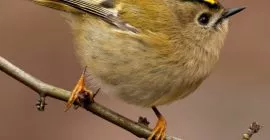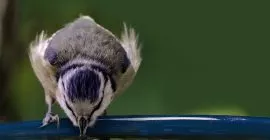Do you need a hand in helping injured birds?
If you spot a bird that you think might be injured, don’t pick it up immediately. Try to assess what kind of injury the bird has and if it is still able to fly.
If you feel the bird still needs help, consider whether you’re able to safely catch the bird yourself, or if you risk injuring yourself or the bird further. If in doubt contact professionals such as the RSPCA or Scottish SPCA for advice or assistance.
If you feel confident in your ability to catch an injured bird use the advice below to do so;
- Approach the bird quietly with a towel or blanket,
- Cover the entire bird with the towel/blanket and wait for the bird to become calm
- Carefully lift the bird into a ventilated cardboard box, ensuring you keep its wings pressed to its body
- Place the bird into a ventilated cardboard box with soft towel or blanket in the bottom
- Position in box in a dark place and contact your local wildlife organisation, such as the RSPCA (England and Wales) or the Scottish SPCA for advice on what to do next.
- Report any diseased birds to the Garden Wildlife Health Project so that they can build up a picture of the issues affecting garden wildlife throughout the country.




